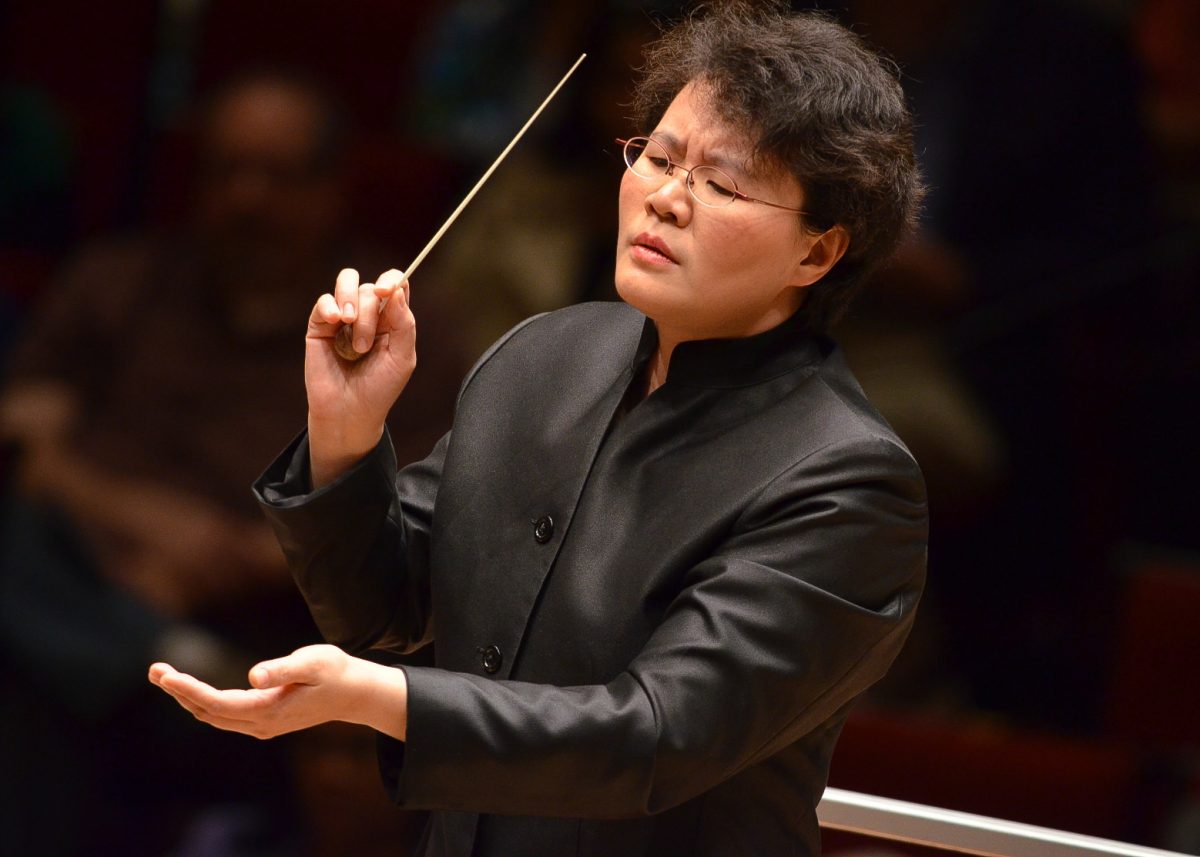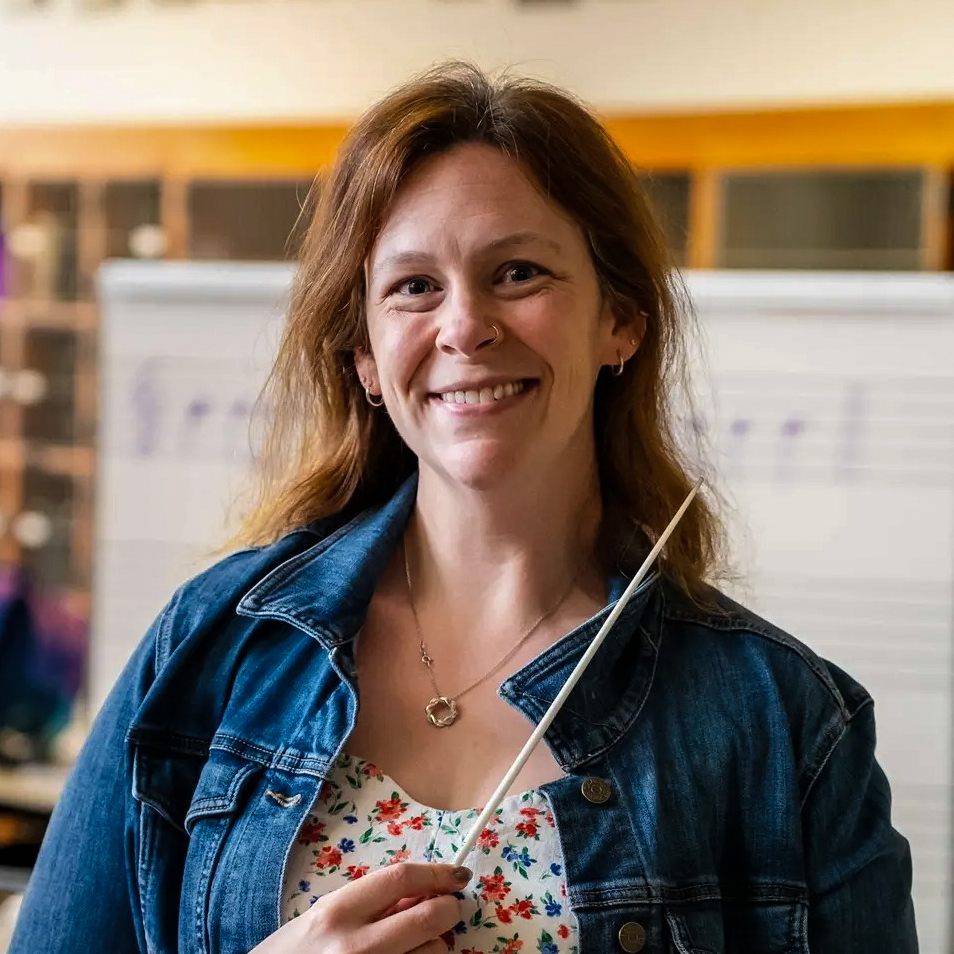Meet Maestra Mei-Ann Chen: a world-class conductor who is breaking boundaries in the conducting industry. Chen was born in Taiwan and moved to Boston to study music at the age of 16. In 2005, she won the First Prize of the prestigious Malko Competition in conducting, the only woman to recieve the award since 1965. Chen is also the first female Asian conductor to hold the Chief Conductor position with an Austrian orchestra.
Critics from The Press Democrat have acclaimed her conducting style as “controlled yet fluid” with “sweeping, circular gestures reminiscent of the great Maestro Seiji Ozawa.” Ozawa’s technique was known to be heavily influenced by the legendary conductor and Boston Latin School alumnus Leonard Bernstein (‘35).
Recently, Chen received the honorable Marylou Speaker Churchill Award from the New England Conservatory (NEC). The Argo sat down with Chen to hear about her grand background and advice to students interested in a career in music.
Q: What was your initial reaction when you were informed about your recent NEC award, and what was it like receiving it?
Chen: I cried […] because Marylou was my American mother. [She was] not only my first violin teacher, but her impact on my life [and] my musical journey was huge. Even to this day, I’m shamelessly quoting Marylou in a lot of my conducting engagements, because that’s how amazing her impact on me [was].
Q: How did you get into music and playing the violin?
Chen: My parents haven’t had a chance to pursue a musical career, and they […] projected their dreams [on] their children — my sister and me. I started studying the violin and piano [and] had my first [orchestra] rehearsal at age 10, which was a turning point, since it was the first time I saw a conductor. I ran home and I told my parents that violin and piano were fun, but I wanted to be a conductor and play the biggest instrument in the room — the orchestra.
Q: Growing up in Taiwan, what made you come to Boston and study at NEC?
Chen: When I was a teenager, living in Taiwan, [NEC’s] Youth Philharmonic Orchestra came to the country on tour. I wanted to have an opportunity to develop my skills. So, I asked for a chance to play my violin to some of the faculty involved in the tour, and that is when I had the chance to play for Mark Churchill, who later became my American father. I played Wieniawski [Violin] Concerto No. 2, and I received a scholarship to come and study at Walnut Hill High School and study at NEC.
Q: What motivated you to become a conductor?
Chen: Even at a young age, I [wanted] to be a conductor — since the very first moment I saw what a conductor does. I always wanted to play the ‘big instrument in the room,’ the orchestra. The orchestra has the biggest sound, which enchanted me, and the possibility of shaping the sound without words — I thought at that point conductors didn’t have to speak much! — was very appealing to me.
Q: Many people don’t realize the kind of work conductors do not only for a performance but also behind the stage. I’m curious — what are some of the works you do as a conductor?
Chen: Currently, I am the music director of two orchestras: the Chicago Sinfonietta, in the U.S., and the Graz Orchestra, in Austria. My work as a conductor goes far beyond the podium: while I rehearse the orchestra, working as a leader and maintaining the team’s motivation and the high artistic standards, I also curate seasons that are relevant to our times. Chicago Sinfonietta is the most diverse orchestra in the United States, founded by Maestro Paul Freeman: one of the first Black conductors to break the glass ceiling, championing composers from minority groups and often ignored by the biggest organizations. In Graz, I have developed unusual and groundbreaking performances in which we tell stories, dress costumes, and expand the concepts of the concert setting. I also have […] launched the careers of dozens of conductors, especially from minority groups, helping promote their careers and give the first step into the big conducting and performance market. Alongside these activities, I am artistic advisor for orchestras, board member for artistic institutions and I guest conduct often around the globe.
Q: Can you tell us any memorable moments in your career?
Chen: So many! I was the first woman to win the prestigious Malko Conducting Competition, and to have the result after so many years of hard work was very special. Also, having Chicago Sinfonietta receive the McArthur Award in 2016 for its legacy and work was very special.
Q: What advice do you have to students who aspire to be a conductor, or want to pursue music in general?
Chen: Never give up! Pursuing a conducting career can be extremely hard for most people, but try to find your true identity as an artist and keep moving and working towards your dreams.








